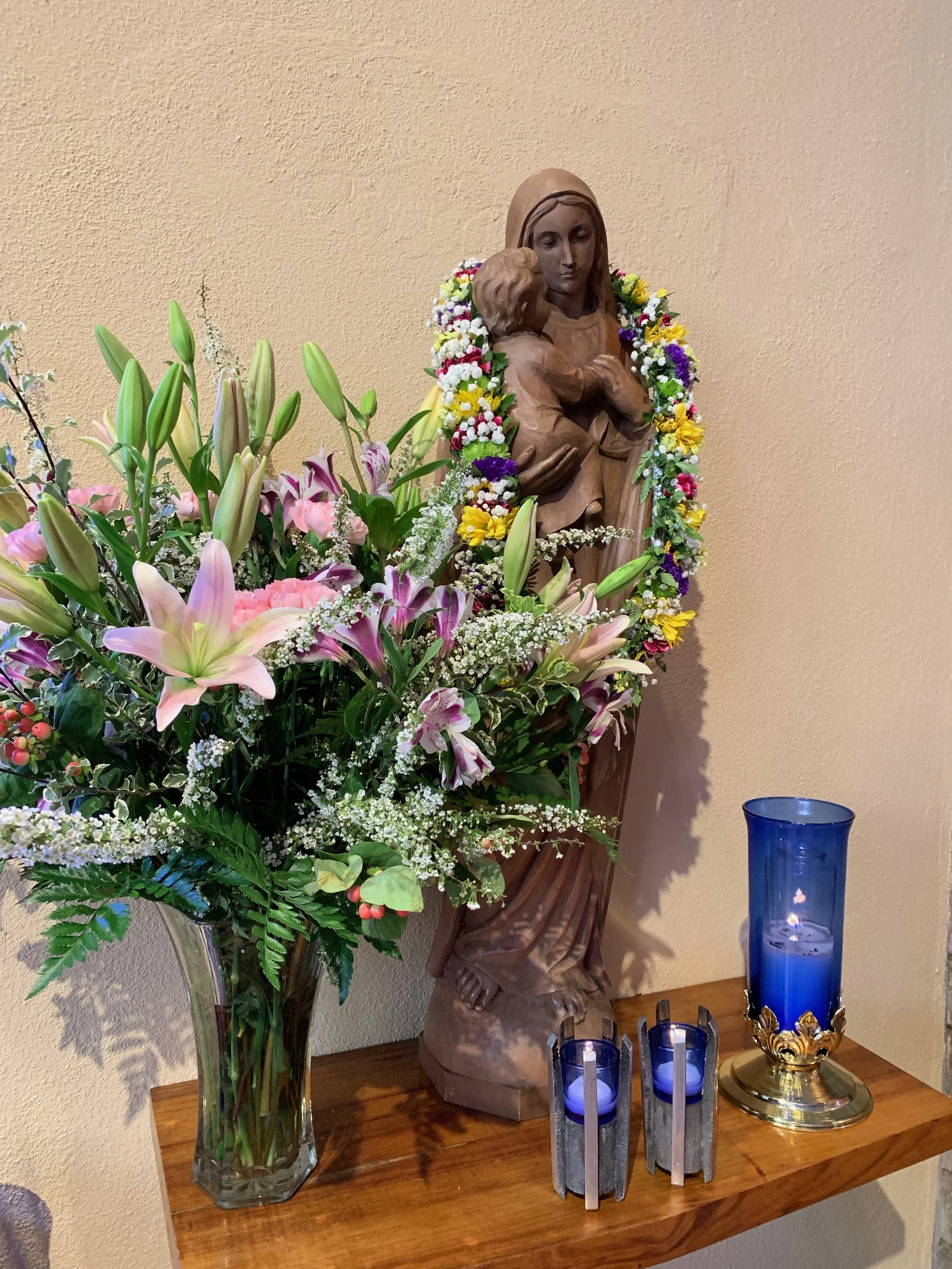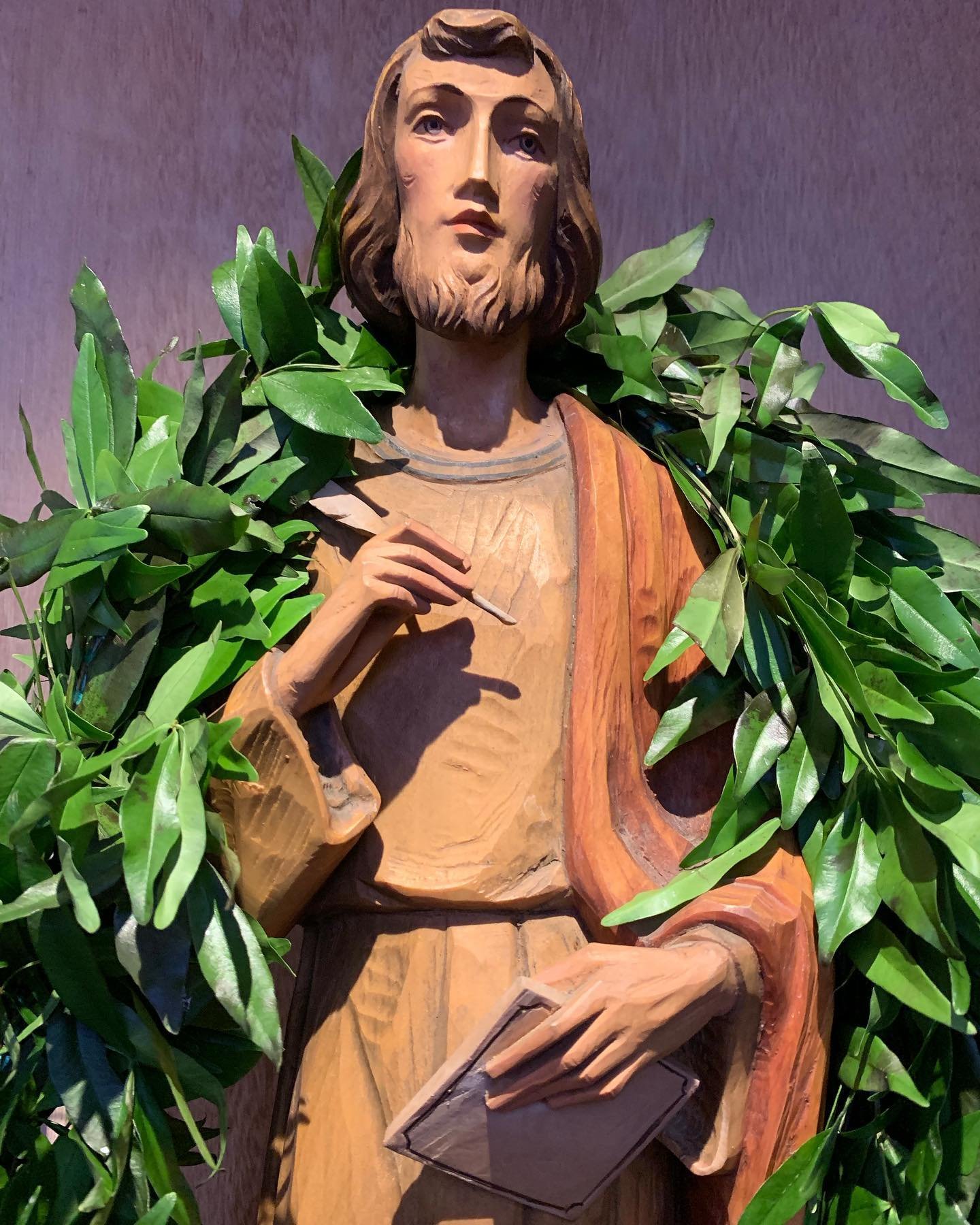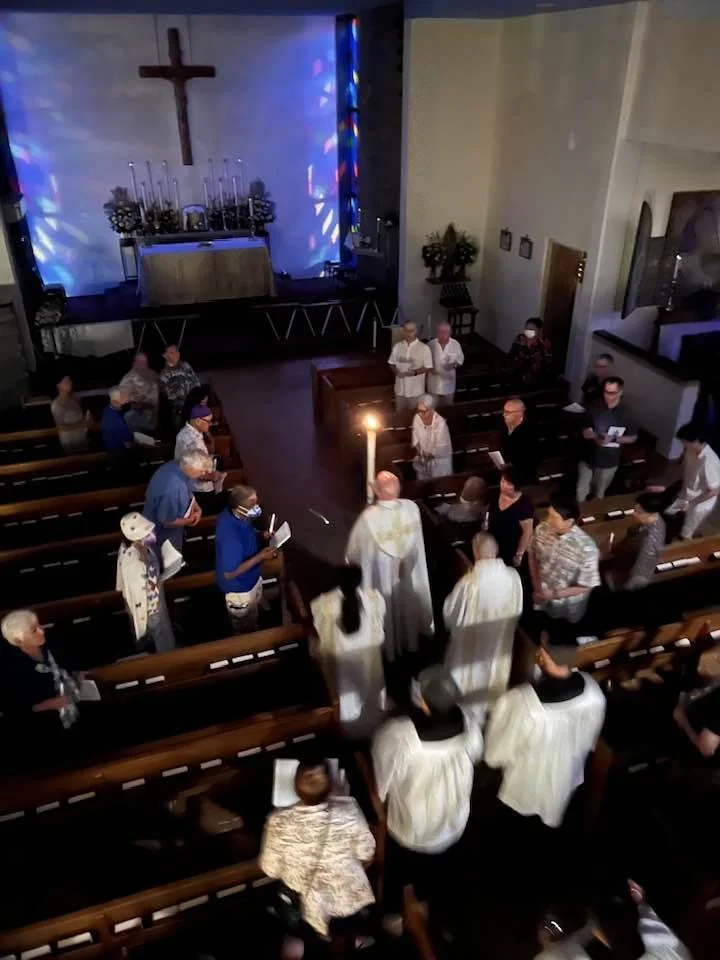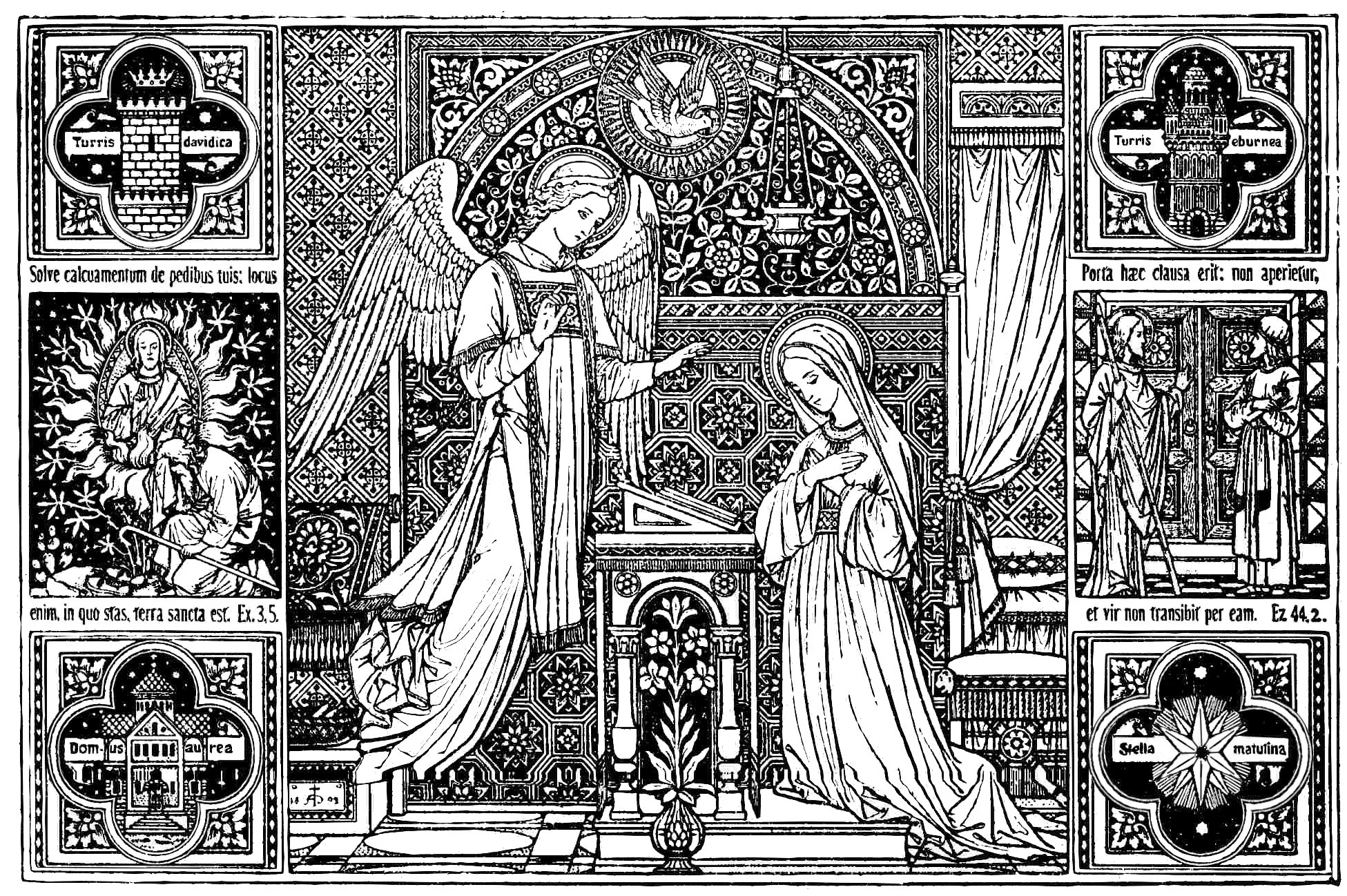From the Rector: Balancing Announcements
/I am not a fan of lengthy announcements at the Sunday liturgies. In fact, I am happiest when there are no announcements. Frankly I continually struggle with where to do announcements during the Sunday masses. If you do the announcements at the beginning of the mass, latecomers miss them. If you do the announcements after the peace, it feels like an intermission. When the announcements are done prior to the blessing at the end of the mass, it feels as if the sending forth has been paused for an interruption.
While I was on vacation I attended a church on the mainland which seemed to relish in their announcements. Before the mass the minister came out to greet the people. He even picked up the hymnal and showed us how it was blue in color. Once he had done this show-and-tell session, we all had to stand and greet one another. (I thought that this might have replaced the sharing of the peace, but it did not. This exercise was repeated before communion too.) In the end, the announcements took about twelve minutes. It felt as if we would never get the liturgy started. Even stranger, all of the verbal announcements were already in the Sunday leaflet. It made me realize that they really did not need the bulletins. As a visitor, none of the announcements were pertinent, and so it felt like a members-only moment.
I am told that in many churches the announcements can be quite lengthy, almost like having a second sermon. In some churches people actually line up at the lectern to give their favorite announcements. Other churches invite people forward for various prayers and blessings, and even more interesting, you make a donation into a piggy bank to have such a prayer said. Thankfully this has not been the tradition at St. Mark's. If the Sunday announcements are well written, and if the website is up-to-date, and if there is a newsletter with good information, I would ascertain that information is being communicated well enough. Certainly there are times when announcements must be made, but that should be the exception and not the rule. My experience is that verbal announcements do not increase participation in parish activities.
The structure of our prayer book Eucharist supports this understanding. We are taught to experience the Eucharist in two parts - the Liturgy of the Word and the Liturgy of Holy Communion. This is well and good. The question becomes how the two parts flow into one another. More and more I have been thinking how the Prayers of the People connect the two parts. Having heard the scriptures and the homily, we bring our prayers to God, but also, those prayers are the first gifts we bring to the altar - a precursor to the bread and the wine. We offer our prayers, and then we confess our own sins, knowing that as we yearn for God's kingdom, we have to begin with ourselves and our church. We are making ourselves ready through prayer and confession to receive God's great gift of communion. When we share the peace, this prayerful reconciliation of our lives continues and works best when it flows directly into the Eucharistic Prayer and the reception of communion. It is all one movement. We pray, we confess, we share the peace, and we receive the Body and Blood of Jesus Christ. To insert a lengthy time of announcements and church business in the middle of this grace seems out of place and disjointed. We are making our pilgrimage from the Scriptures into the Sacrament. Why not let God's grace flow freely and unhindered?
A couple of years ago I attended some yoga classes. Ultimately I decided that yoga was not for me, but I did learn much from those sessions. For instance, once the session began, it continued until it was done. Under no circumstance would an instructor stop the class half way through and have some informal chat time. (It's also worth noting that if you were late, you would be greeted by a door that was closed. You had to be on time to participate.) There was a clear purpose to the session, and that intention was sacred. There was a mindfulness that we were on a journey, and no one wanted to sacrifice that process. What the yoga class called mindfulness, Christians might call prayerfulness. I should also mention that I always felt very welcome at the yoga class, and gimmicks were not necessary to make that the case. Sometimes we forget as Christians that the greatest welcome we can offer to people is a beautifully executed liturgy, grounded in the Scriptures coupled with sacramental hospitality. Our Lord still welcomes people through the Gospel, as well as the grace of Holy Baptism.
Perhaps the underlying issue is that churches can forget that the Sacraments are our main reason for existing. The desire to have all sorts of extra programs often causes us to forget our primary purpose. We are called to ultimately announce God's Word and Sacraments as celebrated in the church. All other announcements are probably better stated at the optional coffee hours which follow our primary banquets.
Father Paul Lillie+







